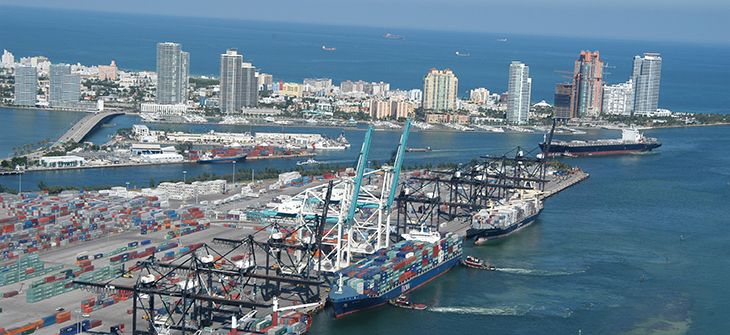- FG Hands Over Warri Port Terminal to Concessionaire
The Bureau of Public Enterprises has handed over Terminal B of the Warri Old Port to the private concessionaire, Ocean & Cargo Terminal Services Limited.
The privatisation agency disclosed this in a statement made available to our correspondent in Abuja on Wednesday by Head, Public Communications, Amina Othman.
Speaking at the handover ceremony, Director-General of BPE, Mr Alex Okoh, said that President Muhammadu Buhari’s administration was committed to a private sector driven economy.
He also called on local and international businessmen to take advantage of the government’s open door policy to establish businesses in the country.
Okoh said that the Nigerian ports were the main gateway to the country and key to the Federal Government’s objective of diversifying and growing the country’s economy.
He pointed out that the objective of the government in port concession was to increase efficiency at the ports with the ultimate goal to modernise the ports and make them more competitive.
The BPE boss said, “The objective of the government in port concession is to increase efficiency in our ports, improve service delivery, upgrade and modernise facilities in the ports, reduce the cost of shipping and clearing of goods at the ports and relieve the government of the burden of financing the sector.”
According to him, the concession is for a period of 25 years at an annual lease fee of $1,621,500, in addition to the entry fee and monthly throughput fee chargeable on the volume of cargo handled.
He gave the assurance that the implementation of the covenanted development plan for the concessionaire would be closely monitored by the relevant government agencies including the Nigerian Ports Authority, BPE and Infrastructure Concession Regulatory Commission to ensure compliance.
The Managing Director of the Nigerian Ports Authority, Ms Hadiza Usman, who was represented by the Executive Director, Marine and Operations of the NPA, Sokonte Davies, said that the concessioning of port facilities was carried out to enhance productivity and attract more cargoes to the hitherto abandoned port.
While appealing to the people in the port community to support government’s initiatives aimed at developing the maritime industry, Usman said the port concession would enhance the economy of Delta State and create jobs for people in the host communities.
The Port Manager (Delta Ports), Mr Simon Okeke, said that the additional terminal to the port was a milestone which would increase maritime activities at the port.
Meanwhile, the NPA has called on communities around Warri, Delta State to cooperate with the concessionaire of Terminal B, Old Warri port.
The agency made this appeal while concluding the handing over of the terminal to the concessionaire.
A statement quoted her as saying, “We, therefore, implore the communities, in making the government’s efforts a success; they should work positively with the concessionaire. The communities should try not to put any pressure on them because pressures can shut the business down.”

 Billionaire Watch2 weeks ago
Billionaire Watch2 weeks ago
 Startups4 weeks ago
Startups4 weeks ago
 News4 weeks ago
News4 weeks ago
 News4 weeks ago
News4 weeks ago
 Bitcoin4 weeks ago
Bitcoin4 weeks ago
 Naira4 weeks ago
Naira4 weeks ago
 Forex3 weeks ago
Forex3 weeks ago
 Treasury Bills4 weeks ago
Treasury Bills4 weeks ago















